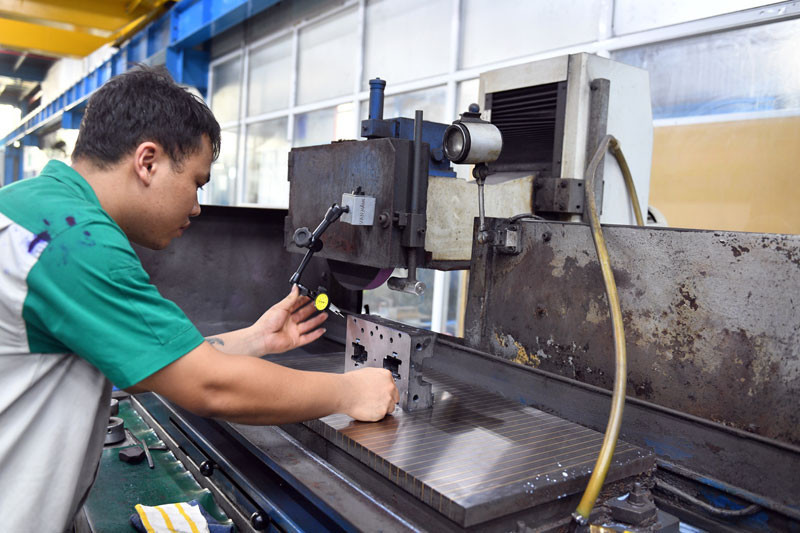
Chair of VAMI (Viet Nam Association of Mechanical Industry) Dao Phan Long said many large wind power projects exist on paper. These would create a large market of equipment for wind power plants in the next five years, and offer opportunities for Vietnamese mechanical engineering enterprises to make equipment, including propellers, wind poles and base systems.
The volume of mechanical engineering products for each project could be up to hundreds of thousands of tons. Regarding the base system alone, an offshore wind power project may need 35-50 poles.
However, analysts say that opportunities for Vietnamese mechanical engineering enterprises remain unclear as they have small operation scale, low competitiveness and limited technologies.
The low capability in providing equipment to wind power plants is an example. The same situation can be seen in many other fields.
According to VAMI, Vietnam has over 25,000 operational mechanical engineering enterprises, which account for 30 percent of total enterprises in the fields of processing and manufacturing.
Vietnamese mechanical engineering enterprises are at a disadvantage in the home market and they always need orders. Large scale projects in the fields of construction, transportation, civil engineering and oil and gas mostly use imported products or use products made by foreign invested enterprises (FIEs).
A survey conducted by the Vietnam Confederation of Commerce and Industry (VCCI )showed that support industry products provided by Vietnamese enterprises account for a very small proportion. The figure is below 35 percent in mechanical engineering.
Most of the locally made content accepted by supply chains are products provided by FIEs in Vietnam.
According to the Ministry of Planning and Investment (MPI), the processing and manufacturing industry continues to lead in FDI (foreign direct investment) with registered capital in the field accounting for 50 percent of total capital.
This is an opportunity to develop the domestic support industry. However, it is difficult to connect and cooperate with FIEs.
Waiting for policies
Do Phuoc Tong, president of the HCM City-based Duy Khanh Engineering, said he decided to invest in the mechanical engineering field in 2016, when he saw great development opportunities. At that time, Duy Khanh had no rival. However, the situation has changed. Three FIEs operating in the field have great advantages, which makes it difficult for Duy Khanh to develop.
VAMI said the state’s management policies on the development of mechanical engineering are unclear. In 2012, the government approved a strategy for the mechanical engineering industry. In 2018, the strategy was updated to fit the new circumstances. However, no detailed policies have been developed.
According to VAMI, the state needs to use technical barriers and set requirements on product origin to protect domestic production. Vietnamese mechanical engineering enterprises need more orders, especially for public investment projects.
The association also suggested setting up a specific volume and value of Vietnamese-made products in projects to be sure that Vietnamese enterprises have opportunities in large projects, and that not all products need to be imported.
Instead, it is necessary to encourage technology transfer so that Vietnamese enterprises can manufacture products themselves.
Pham Tuan Anh, deputy director of the Industry Department under the Ministry of Industry and Trade (MOIT), said what engineering enterprises want the most are not tax incentives and money, but market opportunities. This was once successfully applied in the hydromechanical program for hydropower plants.
“Regarding thermal power plants, the value of 13 engineering parts in a plant alone is worth $300 million. MOIT has many times worked with the Electricity of Vietnam (EVN) and PetroVietnam, but investors showed concern about the quality of products. What will happen if the parts, done separately, can be matched later?” Anh said.
“So, if continuing to organize EPC (engineering, procurement, and construction) bids, it is really difficult for domestic enterprises to squeeze into the supply chain,” he said.
Tran Thuy